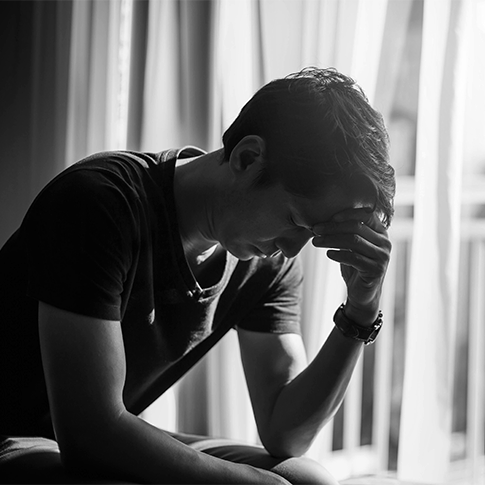Sexual Harm Prevention Orders
Trusted Legal Representation for unfair SHPOs
At KANGS, we understand the serious impact that a Sexual Harm Prevention Order (SHPO) and allegations of sexual misconduct can have on your life. Our experienced legal team of solicitors is committed to protecting the rights of our clients and providing the expert legal advice and guidance.
Facing false accusations of sexual misconduct resulting in a SHPO can be an overwhelming, confusing and challenging time. Our dedicated solicitors specialise in managing complex legal matters and will guide you through the legal process, ensuring that you understand your rights and options. From the initial consultation to resolution, our legal team will work with you and leading experts to build a robust legal strategy and defence.
We have extensive experience in:
- defending clients against the imposition of a SHPO,
- representing clients in appeals against a SHPO,
- defending clients in relation to false accusations of sexual misconduct.
Why choose us:
We have the expertise: Our team has the expertise and knowledge to navigate the legal system effectively. Our highly experienced team is well-versed in the complex and sensitive nature of these cases and understand the nuances that can make a significant difference in your defence.
Compassion and discretion: We understand the impact of false allegations and prioritise your privacy through the legal process.
Personalised representation: Every case is unique and we tailor our approach to meet your specific needs. Your solicitor will take the time to listen to your story, investigate the details of your case and develop a strategic defence plan.
If you are facing an SHPO do not wait to seek legal assistance. Contact us today for a confidential consultation, our experienced solicitors are ready to provide legal advice and guidance.
Testimonials
Got a question?
How can KANGS help?
Our team of specialist solicitors provide the following services:
- Advice and representation in relation to defending an application for a SHPO.
- Advice and representation in relation to appealing against a SHPO.
- Initial Consultation and Legal Advice: Confidential consultation to discuss the case details, provide an initial assessment and advise on legal rights and options.
- Police interviews: representation during police interviews, ensuring our client's rights are protected.
- Representation at a voluntary interview under caution,
- Representation at an interview under caution following arrest.
- Preparation of pre-charge representations to the CPS or Police.
- Representation in Magistrates’ Court and Crown Court proceedings.
- Recommendations on selecting a barrister or King's Counsel (KC), as the cross-examination of the complainant and other prosecution witnesses often plays a pivotal role in court proceedings.
Who can I contact for advice & help?
It is imperative that you instruct an experienced solicitor as soon as you are aware of an allegation being made.
Crucially, it is always important to have a solicitor present in interview at the police station, whether it is an interview by appointment or under arrest.
Please feel free to contact our team as follows:
What is a Sexual Harm Prevention order (SHPO)?
A Sexual Offences Prevention Order (SOPO) was replaced by Sexual Harm Prevention Order (SHPO) in March 2015. A SHPO is a legal measure designed to safeguard the public, typically children and vulnerable adults, from individuals deemed to pose a risk of sexual harm. SHPOs fall under Section 103 of the Sexual Offences Act 2003.
The Legislation:
Sexual Offences Act 2003
Section 103A - Sexual harm prevention orders: applications and grounds.
- A court may make an order under this section (a “sexual harm prevention order”) in respect of a person (“the defendant”) where subsection (2) or (3) applies to the defendant.
- This subsection applies to the defendant where
- the court deals with the defendant in respect of
- a finding that the defendant is not guilty of an offence listed in Schedule 3 or 5 by reason of insanity, or
- a finding that the defendant is under a disability and has done the act charged against the defendant in respect of an offence listed in Schedule 3 or 5, and
- the court is satisfied that it is necessary to make a sexual harm prevention order, for the purpose of;
- protecting the public or any particular members of the public from sexual harm from the defendant, or
- protecting children or vulnerable adults generally, or any particular children or vulnerable adults, from sexual harm from the defendant outside the United Kingdom.
- This subsection applies to the defendant where
- an application under subsection (4) has been made in respect of the defendant and it is proved on the application that the defendant is a qualifying offender,
- the court is satisfied on the balance of probabilities that since the appropriate date the defendant has acted in one or more of the ways alleged by the person making the application, and
- the court is satisfied that the defendant having acted in such a way makes it necessary to make a sexual harm prevention order, for the purpose of;
- protecting the public or any particular members of the public from sexual harm from the defendant, or
- protecting children or vulnerable adults generally, or any particular children or vulnerable adults, from sexual harm from the defendant outside the United Kingdom.
- the court deals with the defendant in respect of
What is sexual harm?
There is not a specific definition of ‘Sexual Harm’ that can be found under the Sexual Offences Act 2003, however, Section 103B describes it as 'Sexual harm from a person means, physical or psychological harm, caused by the person committing one or more offences listed in Schedule 3.'
Sexual harm involves several important aspects, including consent, sexual offences and the protection of vulnerable individuals. Consent requires that a person has both the freedom and the capacity to make a choice. Engaging in sexual activity without consent is considered a sexual offence, which includes crimes such as rape, assault by penetration, sexual assault, and causing a person to engage in sexual activity without consent amongst others.
Schedule 3
The below is an example of offences that are categorised as sexual harm: (Sexual Offences Act 2003, c.42 SCHEDULE 3)
- Rape, assault by penetration
- Causing sexual activity without consent; rape of a child under 13, assault of a child under 13 by penetration
- Causing or encouraging the prostitution of, intercourse with or indecent assault on girl under 16
- Inciting a girl under 16 to have incestuous sexual intercourse
- Abuse of position of trust
- Arranging or facilitating the commission of a child sex offence
- Meeting a child following sexual grooming
- Sexual communication with a child
- Impeding choice, inducements etc. to persons with mental disorder
- Causing or inciting child prostitution or pornography
- Controlling a child prostitute or a child involved in pornography
Latest News & Insights
How Indecent Images are Categorised and Defined
Get in touch
Send an enquiry





